Group Allegedly Linked To Iran Leaks Personal Files About Mossad Chief
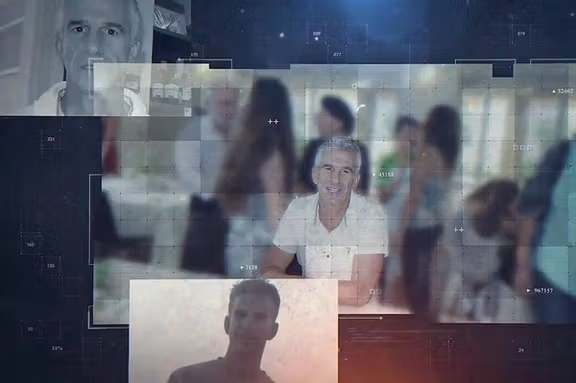
A Telegram channel apparently linked to the Islamic Republic has leaked photos and personal documents about Mossad director David Barnea and his family.

A Telegram channel apparently linked to the Islamic Republic has leaked photos and personal documents about Mossad director David Barnea and his family.
The channel, called "Open Hands", released a video on Tuesday showing the documents and photos and claimed it obtained the material with an extensive surveillance campaign ongoing since 2014.
The channel was created hours before the leak and published multiple versions of the video with subtitles in Arabic and Hebrew as well as English, but the same video was republished with Persian subtitles and a logo of Iranian website NourNews, which is affiliated with the secretary of Iran's Supreme National Security Council (SNSC), Ali Shamkhani.
The group also posted the video on other platforms such as Youtube and Twitter with these captions: “We've got a small gift for the Mossad; With LOVE for David. Happy Purim. To Be Continued”. In their Youtube channel, the video is titled “covert intelligence gathering operation from director of Mossad”.
Files shown in the video include personal photos of Barnea with his family, plane tickets purchased by him, tax documents, and a satellite image of what is claimed to be his house.
The Israeli prime minister’s office issued a statement, saying the “material shown is old and did not originate from the Mossad director’s personal phone.”
Iran claimed it targeted a secret Israeli intelligence base in Iraq’s Erbil with ballistic missiles on March 13, presumably in retaliation for an Israeli aerial attack that destroyed hundreds of drones at an IRGC airbase.
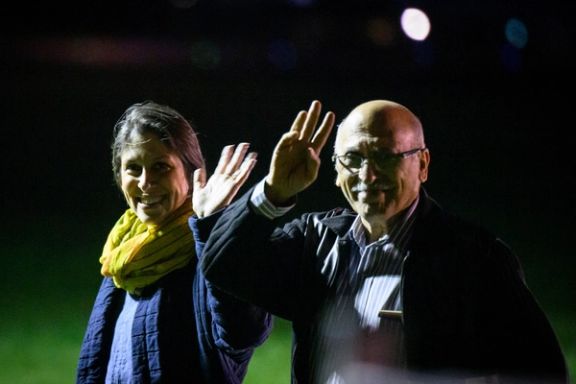
Two British Iranian dual nationals freed from Iran arrived in Britain on Thursday, ending an ordeal during which they became a bargaining chip in Iran's nuclear talks with the West.
British-Iranian aid worker Nazanin Zaghari-Ratcliffe and Anoosheh Ashoori arrived at the British military airbase of Brize Norton in Oxfordshire, shortly after 1 a.m. local time. They walked off the plane together and smiled and waved as they entered an airport building.
"It has been a really difficult 48 hours," British Foreign Secretary Liz Truss said shortly after Zaghari-Ratcliffe and Ashoori arrived at the base. "The expectation was that they would be released but we weren't sure right until the last minute so it's been very emotional but also a really happy moment for the families."
Zaghari-Ratcliffe's husband Richard said the long ordeal appeared to finally be over. "It's just a relief, the idea that we can go back to being a normal family, that we don't have to keep fighting, that this long journey is almost over," he told Reuters.
A statement from Ashoori's family thanked everyone who had worked towards his release. "1,672 days ago our family's foundations were rocked when our father and husband was unjustly detained and taken away from us.
Antonio Zappulla, CEO of Zaghari-Ratcliffe's employer, the Thomson Reuters Foundation, said her release was "a ray of light and hope" at a time when the world was in turmoil. The foundation is a charity that operates independently of Thomson Reuters and its news subsidiary Reuters.

The Biden Administration is considering removing the Revolutionary Guards from its foreign terrorist blacklist in return for unspecified Iranian assurances.
Sources told Axios and Reuters that Washington had not decided what might be an acceptable commitment from Tehran in exchange for such a step, which would reverse former US President Donald Trump's 2019 blacklisting of the group and draw sharp Republican criticism.
The move was the first time Washington had formally labeled part of another sovereign government as a terrorist group.
Iranian officials have been publicly raising the issue since at least November, saying a ‘good deal’ would mean lifting sanctions on the Revolutionary Guard.
The Islamic Revolutionary Guard Corps (IRGC) is a powerful faction in Iran that controls a business empire as well as elite armed and intelligence forces that Washington accuses of carrying out a global terrorist campaign.
A source, who spoke on condition of anonymity with Reuters, said the Biden administration was weighing whether to drop the terrorist designation "in return for some kind of commitment and/or steps by Iran, with respect to regional or other IRGC activities."
The Biden administration's consideration of such a tradeoff was first reported by Axios, citing Israeli and US sources.
Multiple sources have said dropping the designation is one of the last, and most vexing, issues in wider indirect talks on reviving the 2015 deal under which Iran limited its nuclear program in return for relief from economic sanctions.
Both allies such as Israel and domestic opponents of reviving the JCPOA have urged the Biden Administration not to take such a step.
IRGC’s proxies in the region continue attacking US and allied targets. On Sunday, IRGC fired 12 ballistic missiles at Erbil, in Iraq hitting an area near A US consulate building.
Asked about the possibility of removing the IRGC from the US terrorism list, State Department spokesman Ned Price declined comment beyond saying that sanctions relief is at the heart of negotiations to revive the nuclear deal.
Last week an Iranian official said the IRGC's removal from the blacklist had been under discussion as far back as June but that the issue had become more complicated after last summer's election of hardliner Ebrahim Raisi as Iran's president.
The Iranian official, who spoke on condition of anonymity, said the United States had made clear "they cannot remove it without major concessions from Iran," a stance he said had been rejected by Iran's lead nuclear negotiator, Ali Bagheri Kani.
The IRGC's political influence in Iran's complex power structure has increased since the election of Raisi, who took office in August and whose government includes dozens of Revolutionary Guard commanders.
Raisi's election led to a five-month gap in the indirect US-Iranian talks over reviving the nuclear deal, which Trump abandoned in 2018 and reimposed U.S. sanctions, prompting Iran to start violating its nuclear limits about a year later.
Reporting by Reuters
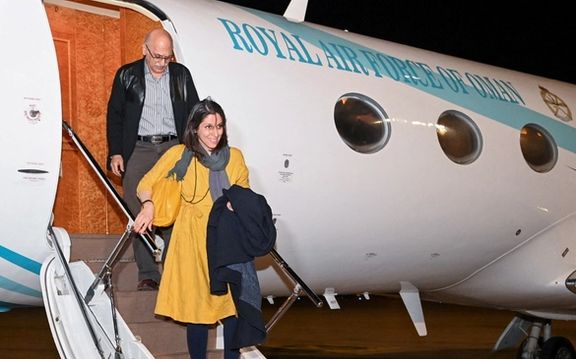
Iran’s hardliner media continued to accuse British Iranian detainees who were released on Wednesday of spying and highlighted that Tehran got paid to free them.
Some media outlets affiliated with the IRGC insisted that Nazanin Zaghari-Ratcliffe, a project manager with the Thomson Reuters Foundation, spied for MI6 and plotted against the clerical establishment through creating and training a network of journalist for a "soft overthrow" of the regime.
After the two detainees were allowed to leave Iran, Fars News Agency which is linked to the Revolutionary Guards called Zaghari-Ratcliffe "the $530 million Spy" and said she had been allowed to go home "in return for the unfreezing" of the UK debt. Fars claimed her arrest in 2016 led to the capture of "50 British spies in Iran" and the dismantling of several "spying networks".
The Iranian foreign minister repeated the claim that the guilt of the freed individuals had been proven but said linking the release of the two British-Iranian dual nationals and unfreezing Britain's $530 Debt to Iran is "wrong".
Speaking to reporters in Tehran after the announcement that the two dual citizens held in Iran for several years, Zaghari-Ratcliffe and Anoosheh Ashoori, were returning home, Hossein Amir-Abdollahian said they were freed to go home on "humanitarian grounds'.
"I say candidly that there was no link between the unfreezing of the sum [of $530 million] and the release of individuals who were arrested and tried on espionage and security-related charges. Their crimes were investigated by the judiciary and decisions were made [to imprison them]," he said, adding that Tehran received the money from Britain "several days ago".
Developments in the case happened quickly on Wednesday. As the British prime minister Boris Johnson confirmed that two would leave Iran immediately, they were flown out of Tehran by a plane provided by the Royal Air Force of Oman to Muscat. They left the Omani capital on a military Titan flight headed to Brize Norton Royal Air Force (RAF) station in Oxfordshire late Wednesday evening.
In a statement Wednesday, British Foreign Secretary Liz Truss said she met Omani Foreign Minister Sayyid Badr Albusaidi to secure Oman’s diplomatic assistance. "We are grateful to our friends in Oman for their support in securing the return of our nationals," she said.
Truss added that Iran has agreed to release a third British-Iranian citizen, Morad Tahbaz, on furlough to his house in Tehran. Tahbaz, a conservationist and businessman has been in prison in Iran since 2018.
The British foreign secretary also said in her statement that London's historical debt to Iran has been "settled in full compliance with UK and international sanctions and all legal obligations", adding that these funds would be "ring-fenced solely for the purchase of humanitarian goods".
Richard Ratcliffe, Zaghari-Ratcliffe's husband, in the past eighteen months repeatedly charged that the Iranian government had taken his wife hostage to force the British government to repay 400-million-pounds it received in the 1970s to deliver Chieftain tanks to Iran.
“Iran conducts its diplomatic business through hostage-taking, in part because it is cost-free. British citizens will not be protected from hostage-taking by words and soundbites, but by actions that cause the perpetrators to reassess their calculations and consider the personal costs – for their role in what is a serial organized crime,” Richard Ratcliffe told The Guardian in September 2021.
International organizations such as Human Rights Watch (HRW) and the UN Working Group on Arbitrary Detention have for years said Iran's security forces were targeting Iranian dual citizens and foreign nationals, charging them with cooperating with "hostile' states without revealing any evidence, and sentencing them after trials that violated their right to due process.
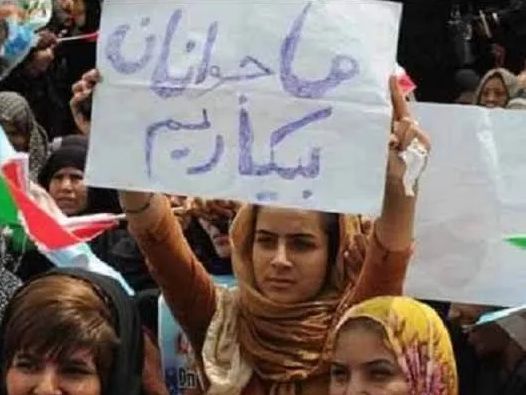
None of the top ten characters appreciated by Iran’s young people is Iranian or a Muslim, according to Vahid Yaminpour, the deputy minister of youth and sports.
Without citing any source for his ‘information,’ Yaminpour told Lotfollah Dezhkam, representative of Supreme Leader Ali Khamenei in Shiraz province Wednesday that many young people were focused on “Hollywood and European” figures. IRNA that reported his remarks did not say who Yaminpour named in the top ten, nor exactly which age range he was referring to.
Expressing concern that “today's youth spend all their time with the media, and the family is their next priority,” Yaminpour claimed that “30 percent of young people believe that marriage is not for everyone” and that “significant part of these young people are girls.”
Yaminpour said that precisely 89.3 percent of Iranian youth used social media, with 70 percent of those on Instagram. He called for more work to provide appropriate content.
Internet penetration in Iran was in January put at 123 percent by the Communications Regulatory Authority, a high level for the region, although thousands of websites and major social media networks have been blocked by the government to control both political and ‘un-Islamic’ content. Almost everyone uses VPN software to get around the censorship.
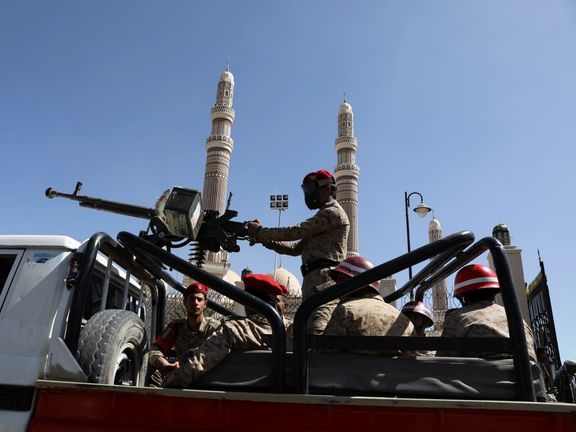
Yemen's Iran-backed Houthi group said Wednesday it would welcome talks with the Saudi-led coalition if the venue is a neutral country, including some Persian Gulf states.
The Saudi-based Gulf Cooperation Council (GCC) plans to invite Yemeni parties including the Houthis for consultations in Riyadh this month, two officials in the region told Reuters on Tuesday.
"It is neither logical, nor fair that the host of the talks is also the sponsor of war and blockade," the Iran-aligned movement said in a statement on the official news agency.
Riyadh leads a military coalition that has been battling the Houthis for seven years in a conflict widely seen in the region as a proxy war between Saudi Arabia and Iran. Tehran has been saying in recent months that it wants to improve ties with regional countries, but has suspended talks with Saudi Arabia.
GCC members Oman, where some Houthi officials are based, and Kuwait, which hosted previous peace talks in 2015, would be a more neutral ground for such consultations.
The UN special envoy has been holding talks with Yemeni parties to build a framework for inclusive political negotiations to end the war that has killed tens of thousands of people and pushed Yemen to the brink of famine.
The alliance intervened in March 2015 after the Houthis ousted the internationally recognized government from the capital, Sanaa, in late 2014. The group says it is fighting a corrupt system and foreign aggression.
Reporting by Reuters